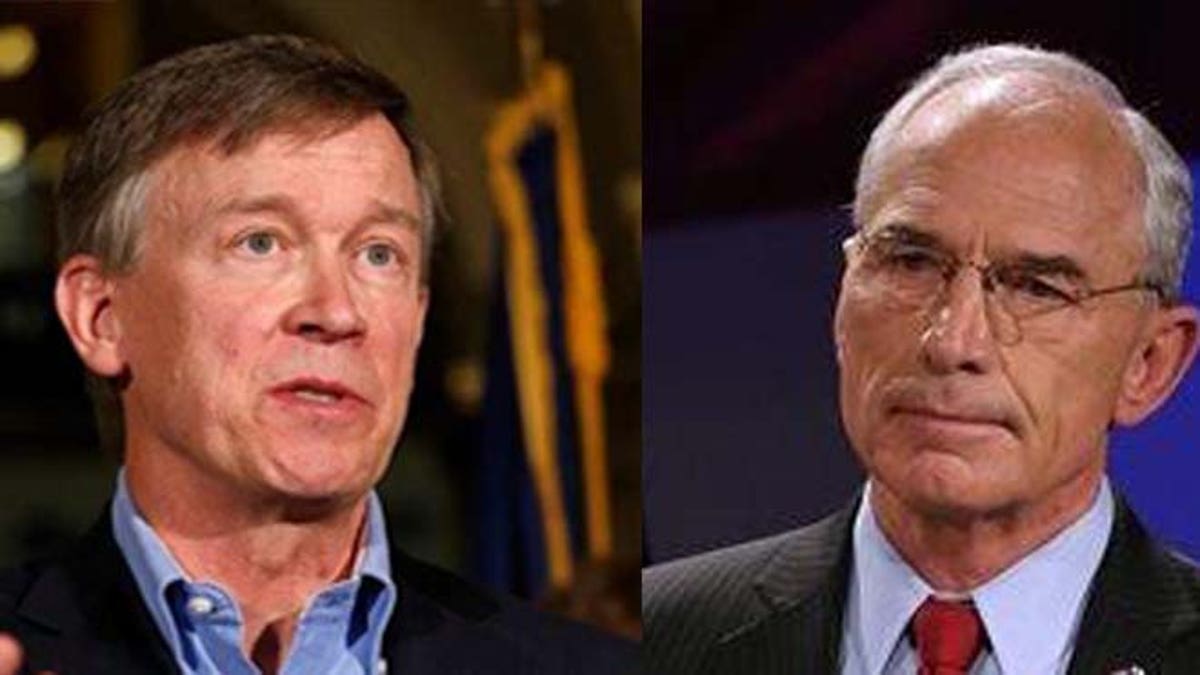
The gubernatorial race in Colorado between Gov. John Hickenlooper, a Democrat, and Republican U.S. Rep. Bob Beauprez has been defined by issues like the death penalty and gun control – but immigration policy could play a big role come November, too.
Over the last week, Latino advocacy groups, upset about Colorado’s new driver’s license program for undocumented immigrants, are threatening to turn their backs against Hickenlooper and Democrats at the polls. The race could be one of many case studies this fall as to how intense attention on immigration reform, following the surge of more than 63,000 unaccompanied minors crossing the border illegally, will affect, if at all, Latino voter turnout and ultimately swing mid-term election results.
The problem began August 1st when undocumented immigrants in the state were allowed to get driver’s licenses and identification cards. The new law, which was passed in July 2013, was seen as a victory in the Latino community and among immigration activists who say thousands of undocumented immigrants need licenses to work and provide for their families.
But activists and immigrant community members say the implementation of the law is poorly resourced, according to the Denver Post. Only five out of the state’s 56 licensing centers will be issuing the cards – by appointment only, and according to the Post, only a little over four full time and 13 temporary positions have been added statewide to deal with the surge of new license requests.
There are an estimated 150,000 undocumented immigrants, mostly Latino, in Colorado and the newspaper estimates some immigrants may have to wait up to four years to get an appointment with the Department of Motor Vehicles.
Further irritating Latino activists, the Colorado’s driver’s handbook was translated into Spanish about two weeks after the state began issuing licenses.
The lack of resources sent a small handful of advocates to protest outside the offices of the state’s Democratic Party last week – protestors held signs reading “shame on you Democratic Party” and “Stop Discrimination.”
"We're here because we know the governor wants the Latino vote," Patricia Ramírez, an organizer for Driver's Licenses for All, told the Post. "We want more (licensing) offices open before we give him our vote."
The number of Latino voters in Colorado has climbed by more than 20,000 since 2010 – from 144,000 to 162,000, according to the National Association of Latino election Officials (NALEO). A July Quinnipic University poll found that Hickenlooper currently has 58 percent of the Latino vote, and his opponent Beauprez has 31 percent of the vote.
Experts say the suggestion that an issue over driver’s licenses could make Latinos in Colorado vote Republican seems a bit far-fetched. But the Democratic Party in the state isn’t taking the activist threats lightly.
Last Thursday state Democrats released a news release shortly after activists protested highlighting comments Beauprez made during a radio interview on 710 KNUS where he said he would send Colorado National Guard troops to the Mexican border if Texas Governor Rick Perry requested it.
Beuprez also said he would stop “sanctuary policies” that keep undocumented immigrants safe from deportation. His campaign spokesman, however, later clarified those comments with the Denver Post saying Beauprez would uphold all laws in place in the state and as governor he would “not pick and choose the ones he likes.” The spokesman said Beuprez doesn’t think the licensing program is a solution to the immigration problem but rather a “symptom of a broken immigration system.”
The growth of the Latino electorate in Colorado has made the state one of the most electorally competitive in the nation, said Gabriel Sanchez, Director of Research for Latino Decisions and a political scientist at the University of New Mexico.
“Our polling in Colorado has found that immigration policy has become a major factor driving Latino voting behavior,” Sanchez said in a statement, “which helps explain the surge in Democratic support among this key segment of the electorate.”












































